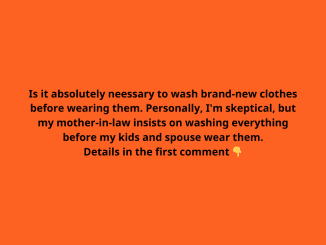In today’s world, appearances often speak louder than actions. We’ve all met people who seem kind, generous, and righteous—but something doesn’t sit right. That’s because not all who appear “good” are actually driven by integrity. Some wear a mask of morality to manipulate, gain favor, or boost their egos. These are people with fake morality—and getting too close to them can drain your energy, waste your time, and leave you questioning your own values.
Let’s break down the four most common characteristics of people who fake morality and explore why you’re better off keeping them at a distance.
They Only Help When There’s Something In It for Them

Ever notice how some people suddenly become “helpful” when others are watching? Or how they jump to assist only when there’s a reward or recognition involved? That’s a red flag.
These individuals don’t help out of kindness—they help for applause. They want to be seen as generous, not be generous. When there’s no camera, no crowd, and no potential gain, they disappear. True kindness doesn’t require an audience.
If you’re close to someone like this, be cautious. Their so-called support is conditional. The moment helping you no longer serves their interests, they’ll walk away—and worse, they’ll expect you to thank them for it.
They Do Good Things Just to Look Good
People with fake morality are obsessed with image. They’ll donate publicly, volunteer strategically, and share their “good deeds” online with captions like “Not all heroes wear capes.” But behind the filters and hashtags lies a simple truth: they’re in it for the praise, not the purpose.
Doing something good should feel rewarding because it helps someone—not because it earns likes or compliments. But for these people, everything is a performance. Their reputation is more important than the actual result of their actions.
They’re not interested in real change. They’re addicted to validation. And if you get too close, you might get caught in the act—or worse, used as a prop in their next show.
Video : 3 Signs Your Friends Are NOT Your Friends
They Pretend to Be Kind to Impress, Not to Connect
Some people act virtuous in public but act very differently behind closed doors. They speak kindly in groups, offer compliments to strangers, and appear calm, thoughtful, and composed. But in private, they’re dismissive, self-centered, and emotionally unavailable.
This is emotional camouflage.
Their goodness is just another way to be admired. They’re not building real relationships—they’re curating a reputation. That’s why they rarely let people in too deep. Real vulnerability would reveal the gap between who they claim to be and who they really are.
And if you get close enough to see behind the mask, they’ll either push you away—or blame you for noticing.
They Chase Success Only for Applause
There’s nothing wrong with ambition—but fake moralists are driven by one thing: admiration. They work hard, climb high, and strive relentlessly, but not for personal growth or fulfillment. They do it so others will see their greatness.
They need applause to feel valid. Praise becomes oxygen. And if they don’t get it, they spiral. That’s why their success feels performative. They care more about being recognized than being fulfilled.
If you’re in their circle, you might notice how they downplay your achievements while exaggerating theirs. Their goal isn’t mutual support—it’s winning the spotlight. And if you challenge their image, they won’t take it lightly.
Why You Should Keep Your Distance
Here’s the truth: people with fake morality aren’t just annoying—they can be toxic. They create shallow relationships, emotional manipulation, and constant performance. And they drain the life out of those who get too close.
Video : 7 Signs That Someone Dislikes You and is Hiding it
You might find yourself giving more than you get, questioning your values, or feeling small just to keep the peace. That’s not a healthy dynamic—it’s a trap.
True connection is built on authenticity, not image. It’s okay to admire people who do good, but make sure their actions match their words—even when no one’s watching.
Choose Integrity Over Appearances
In a world full of curated lives and filtered intentions, choosing to surround yourself with people who live authentically is more important than ever. Real kindness doesn’t shout. It shows up, quietly and consistently.
So the next time you notice someone doing good for show, ask yourself: are they driven by principle or performance?
Because at the end of the day, the most dangerous people aren’t the ones who do wrong out loud—it’s the ones who pretend to be good while serving only themselves.
Protect your energy. Value authenticity. And never be afraid to walk away from people who only wear goodness as a disguise.


